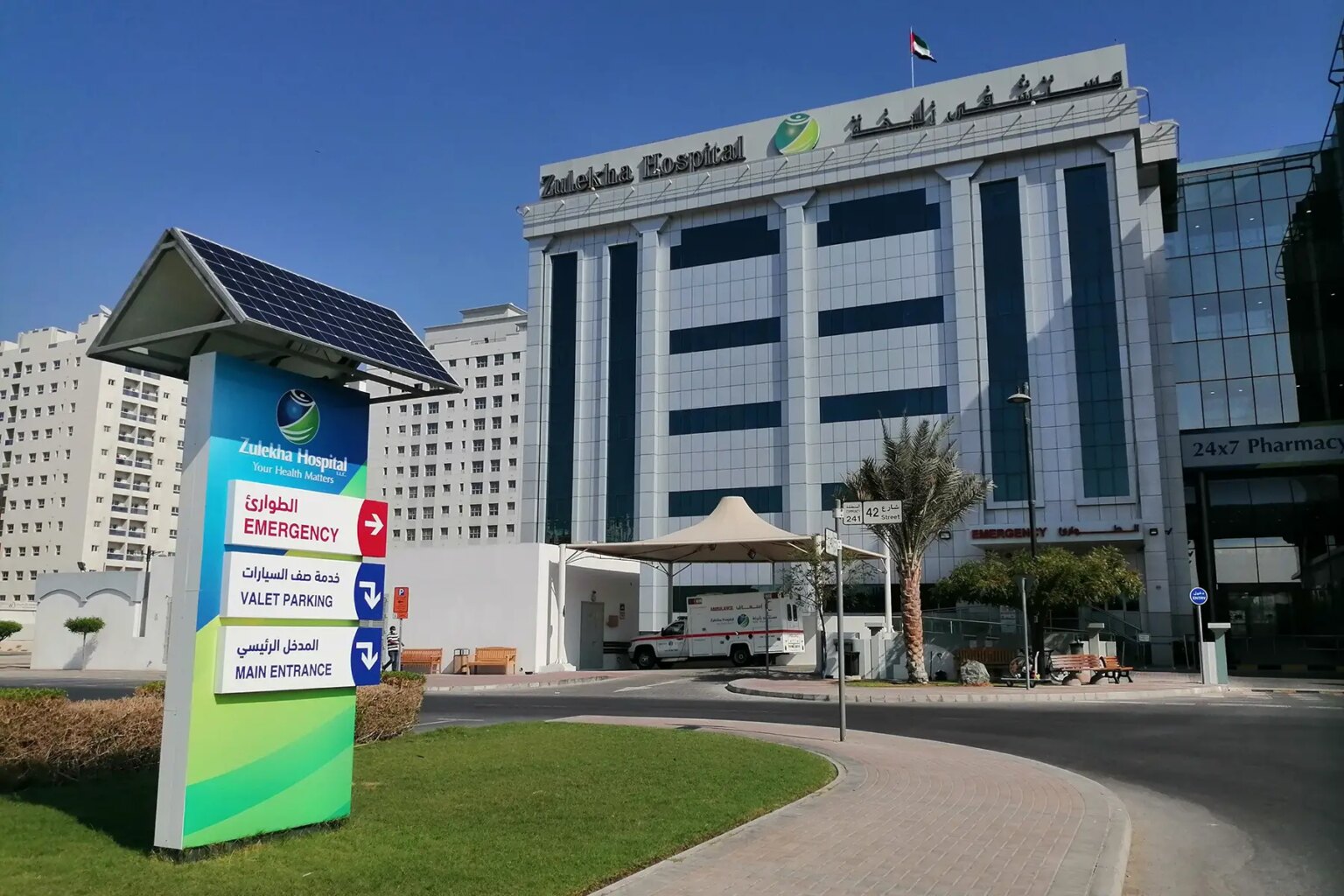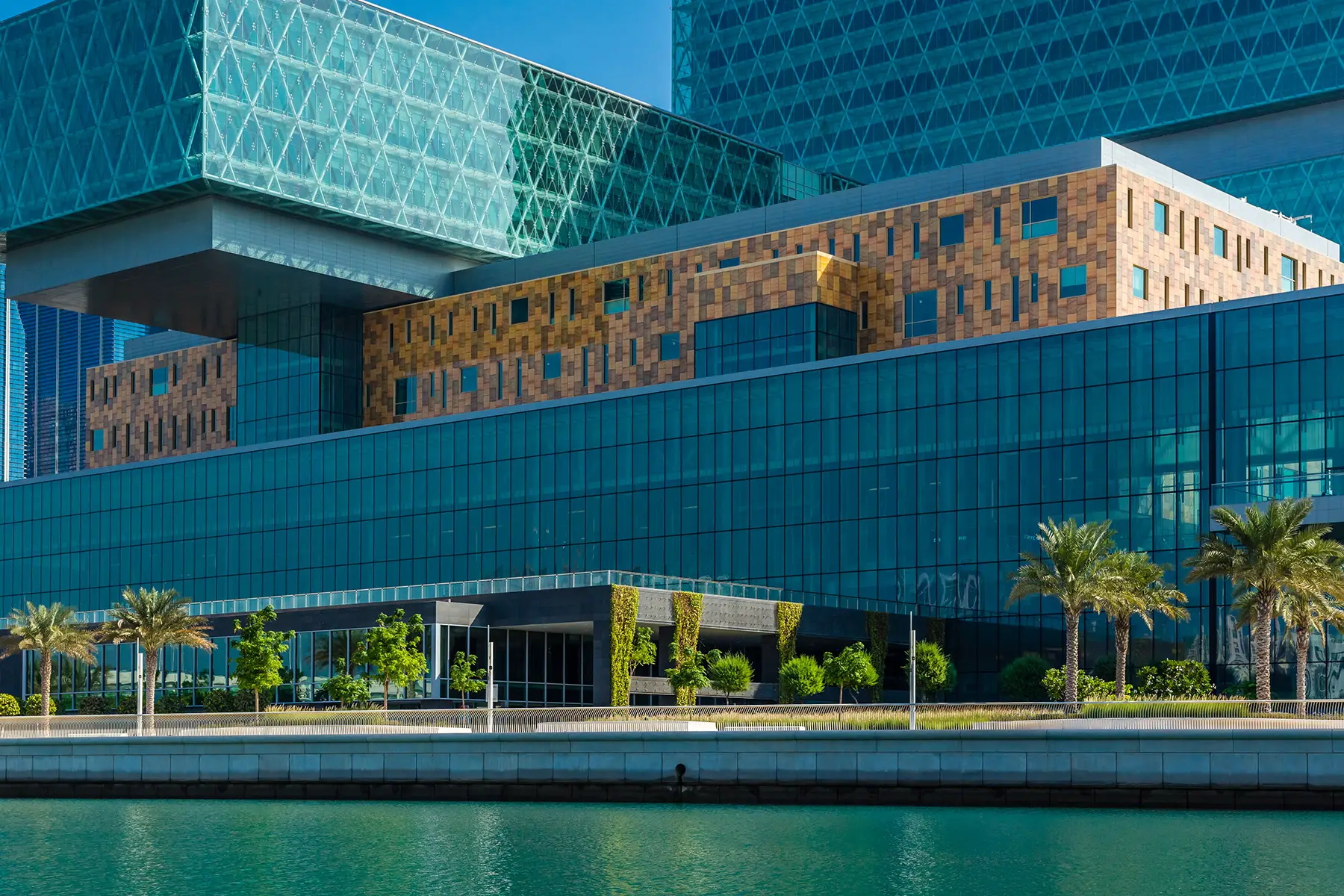The UAE is one of the wealthiest countries in the Middle East. As a result, it offers a world-class healthcare system across the Emirates, especially in Abu Dhabi and Dubai. The country offers a mix of public and private hospitals and you can access these facilities with public or private health insurance, depending on your nationality.
Sounds confusing? Not to worry, as we will help you understand the hospital system in the UAE by looking at the following:
APRIL International
Looking for expat-friendly health insurance in the UAE? APRIL International has a long history of providing health coverage tailored to the unique needs of the expat lifestyle, ensuring peace of mind for you and your family. Whether you’re relocating to the UAE or simply staying short-term, APRIL International has the right policy for you.
Hospitals in the UAE
The 2021 World Index of Healthcare Innovation ranked the UAE as the 20th best healthcare country globally. In short, it has public and private health systems which are regulated at a national and emirate level. The Ministry of Health and Prevention (MOHAP) oversees healthcare nationally. Then regional healthcare authorities ensure a high standard of care within each emirate. These designated authorities include the Health Authority-Abu Dhabi (HAAD), the Dubai Health Authority (DHA), and the Emirates Health Authority (EHA).
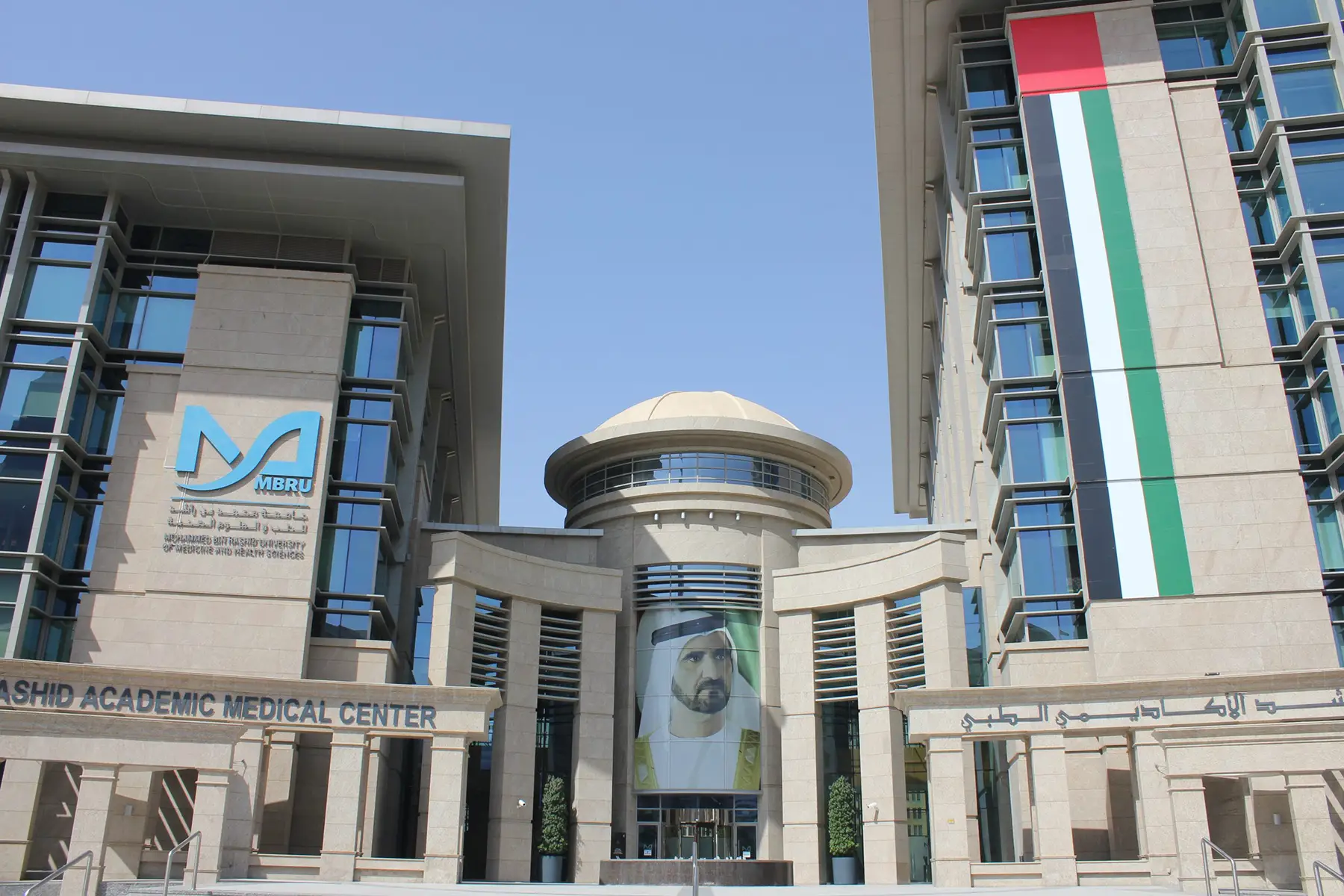
Historically, the government subsidized public healthcare and hospitals in the UAE. However, following the growth of the private healthcare system, there are now more private hospitals than public. In fact, according to 2017 statistics, there are 98 private hospitals, compared to just 45 public ones.
Notably, both private and public hospitals in the UAE offer a high quality of care. While public institutions provide more general healthcare services, private hospitals are more specialty-based. Furthermore, public hospitals are often research and training facilities, too.
How to access hospital treatment
Public healthcare is free or highly subsidized for citizens in the UAE. They can access hospital treatment with their national Health Card (Dubai) or their Emirates ID which shows their insurance details.
In contrast, foreign nationals residing in the UAE must have private health insurance to access hospital care. That said, they will still need to apply for a national public Health Card through the MOHAP to do so. However, while the fee for this is fairly reasonable, at AED 500, the benefits are limited as it only applies to some public health institutions and hospitals.
Booking hospital appointments is easy, and you can do it online. Patients can access treatments without prior notice on their first visit but may require a direct referral from a doctor for a second consultation.
Emergency treatment in the UAE
There are several emergency numbers in the UAE. However, in a medical emergency, you should call 998 for an ambulance. Both public and private hospitals accept patients for emergency treatments. Fortunately, this applies to Emirati nationals, expats, tourists, and visitors, and the intake treatment is always free.
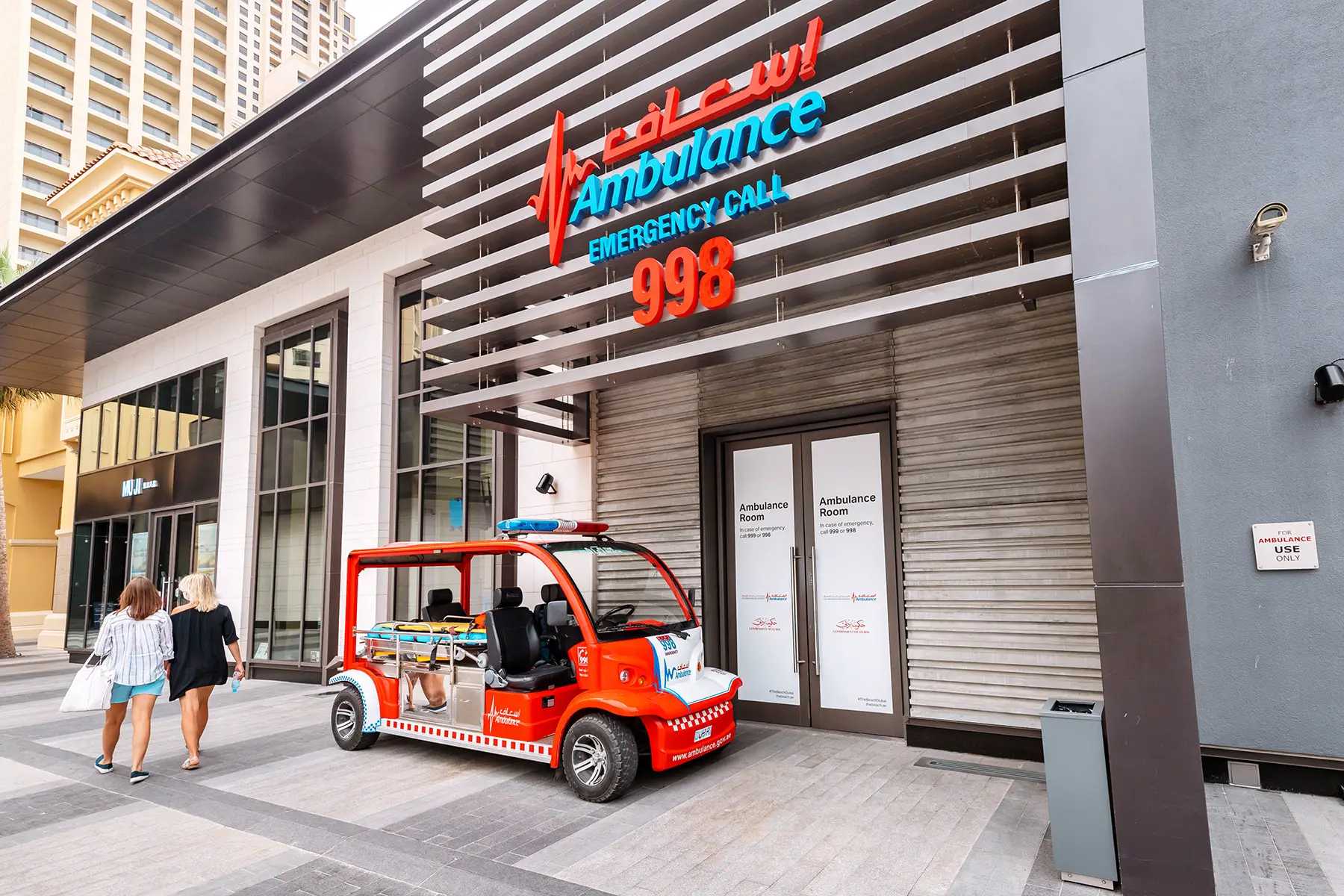
However, once the patient is stabilized, the hospital might transfer them to another facility, which is better equipped for specialized care. Therefore, any additional care requires payment, either by the patient or their insurance provider.
Hospital stays in the UAE: what to expect
Globally, the UAE’s hospitals are highly rated. Accordingly, most hospitals across the Emirates offer world-class facilities, especially in Dubai and Abu Dhabi. For this reason, the latest Medical Tourism Index Rankings places them sixth and ninth, respectively, among the world’s leading medical tourism destinations. Moreover, the rest of the emirates are not far behind.
Generally speaking, hospital patients can expect an excellent standard of medical care from highly-trained professionals. Of course, you can choose to have a private room, but it will cost more than if you share with another patient. Fortunately, hospital rooms tend to be spacious, too, and many are equipped with WIFI, televisions, and other electronic utilities. Aftercare facilities are also first-class.
Hospital costs in the UAE
Private health insurance is relatively expensive in the UAE and is currently the seventh-costliest in the world. That said, hospital expenses are significantly lower than in the US and the UK. A prostate operation, for instance, may cost 40% less in the UAE than in these countries.
Health insurance for hospital costs in the UAE
It is important to be aware that insurance requirements differ between the emirates. For instance, in Abu Dhabi and Dubai, it is mandatory to have health insurance, while in others, it is not. As a result, nationals enjoy full medical coverage under the Thiqa (in Dubai) and Saada (in Abu Dhabi) insurance programs.
Expats, on the other hand, must have private health insurance, and this is typically provided by your employer. They will also cover your spouse and your children. You can read more about this in our guide to health insurance in the UAE.
However, if your employer doesn’t fund your health insurance, you must cover the premiums. Although these can vary, the average annual insurance cost is around AED 10,000 per person, and a family of four can expect to pay close to AED 20,000 per annum.
It is important to know that you will be fined every month if you are uninsured, especially in Abu Dhabi and Dubai. In fact, the government won’t renew visas or grant residency without evidence of adequate health insurance.
Typical medical services covered
Fortunately, policyholders can expect value for their money, with most plans covering the following:
- Ambulance fees
- Pre-and-post hospitalization care
- In-patient hospitalization
- Treatment of pre-existing diseases and health illnesses
- Hospital room costs
- Newborn and maternity care
- Routine health checkups
- Vaccinations and inoculations
- Donor expenses for organ transplants
Typical medical services not covered
Conversely, insurance policies in UAE don’t cover medical services such as:
- Dental treatments
- Optical care
- Plastic or cosmetic surgery
- Treatments for sexually transmitted illnesses
- Obesity-related healthcare
The process of payments and claim reimbursements
Thankfully, claiming reimbursement is straightforward in the UAE. As such, patients must supply relevant documents to the treatment facility to receive compensation. Typically, these include:
- Original medical records
- A signed claim form from the insurance provider
- A hard copy of the policy plan
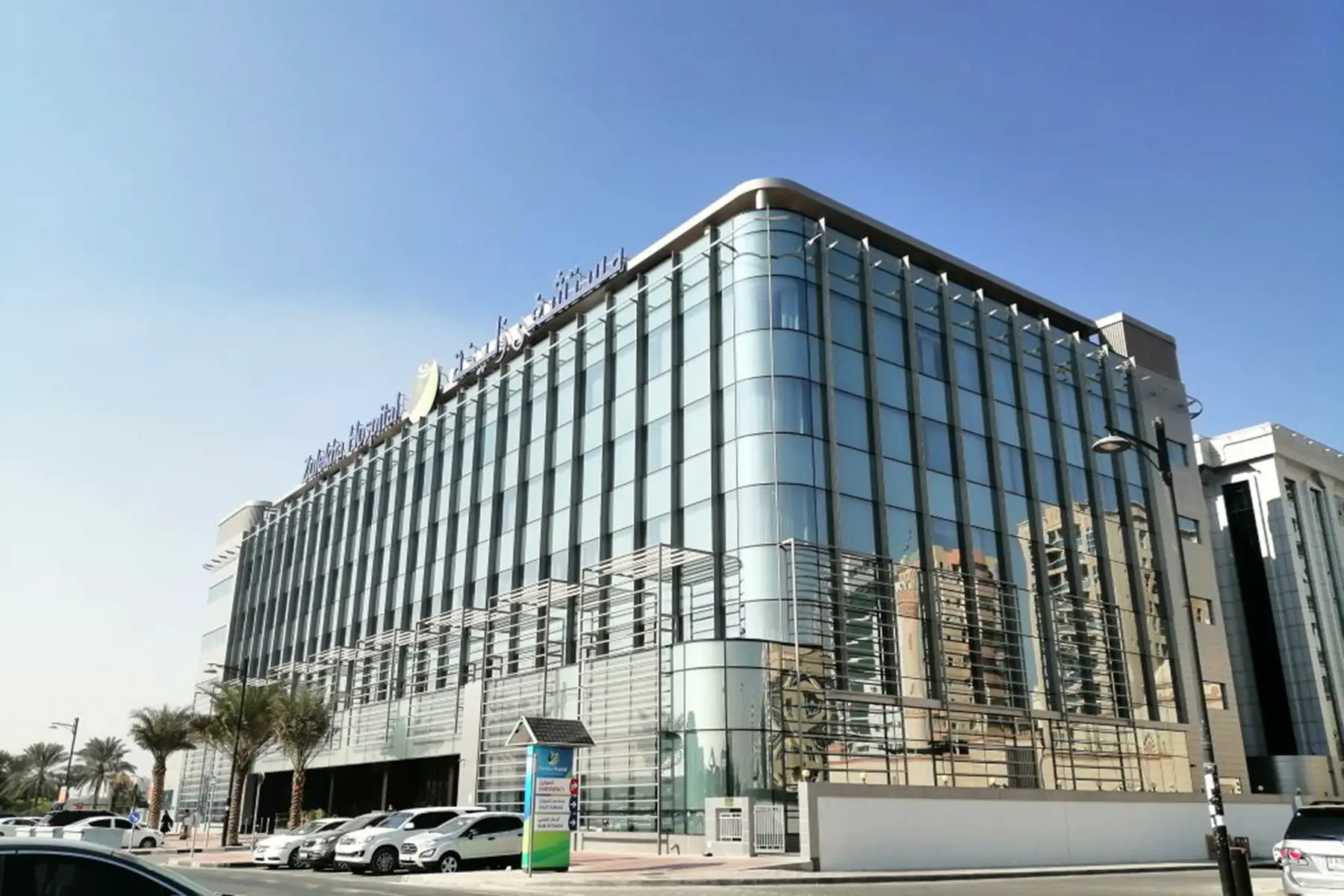
You will need to present these documents to the treatment facility. The hospital will then send your medical bills directly to your insurance provider without requiring any further action or payment from you.
Notably, network hospitals are contracted to an insurance provider. Here, policyholders have free access to treatments, tests, and services specified in their plans. They can also benefit from cashless redemption. In other words, patients only provide their insurance policy details, and the hospital will claim the costs back from the insurance provider.
A hospital that is not contracted to your insurance provider, on the other hand, will bill you directly for treatments. However, you should speak to your insurance company beforehand as you may be eligible for reimbursement claims depending on your policy’s criteria.
Private health insurance providers in the UAE
To summarize, expats will need to arrange private health insurance in the UAE. And fortunately, there are a number of global health insurance providers to choose from. These include:
Above all, it is important to check your policy to see:
- What it covers
- Whether there is an upfront cost
- How you can claim back for medical procedures and treatments
Being discharged from the hospital
Patients may discharge themselves from hospitals in the UAE. Even so, the process is usually determined by the doctor in charge of the patient’s treatment. The patient will also need to book follow-up appointments before being discharged. They will also receive a set of healthcare instructions to follow at home.
Visiting someone in the hospital
Visiting hours differ between hospitals across the Emirates. However, generally, only two visitors per patient are allowed in the morning or early afternoon and again in the evening. Often, visitors need to be 12 years or older, and because of COVID-19, all hospital visitors must wear face masks.
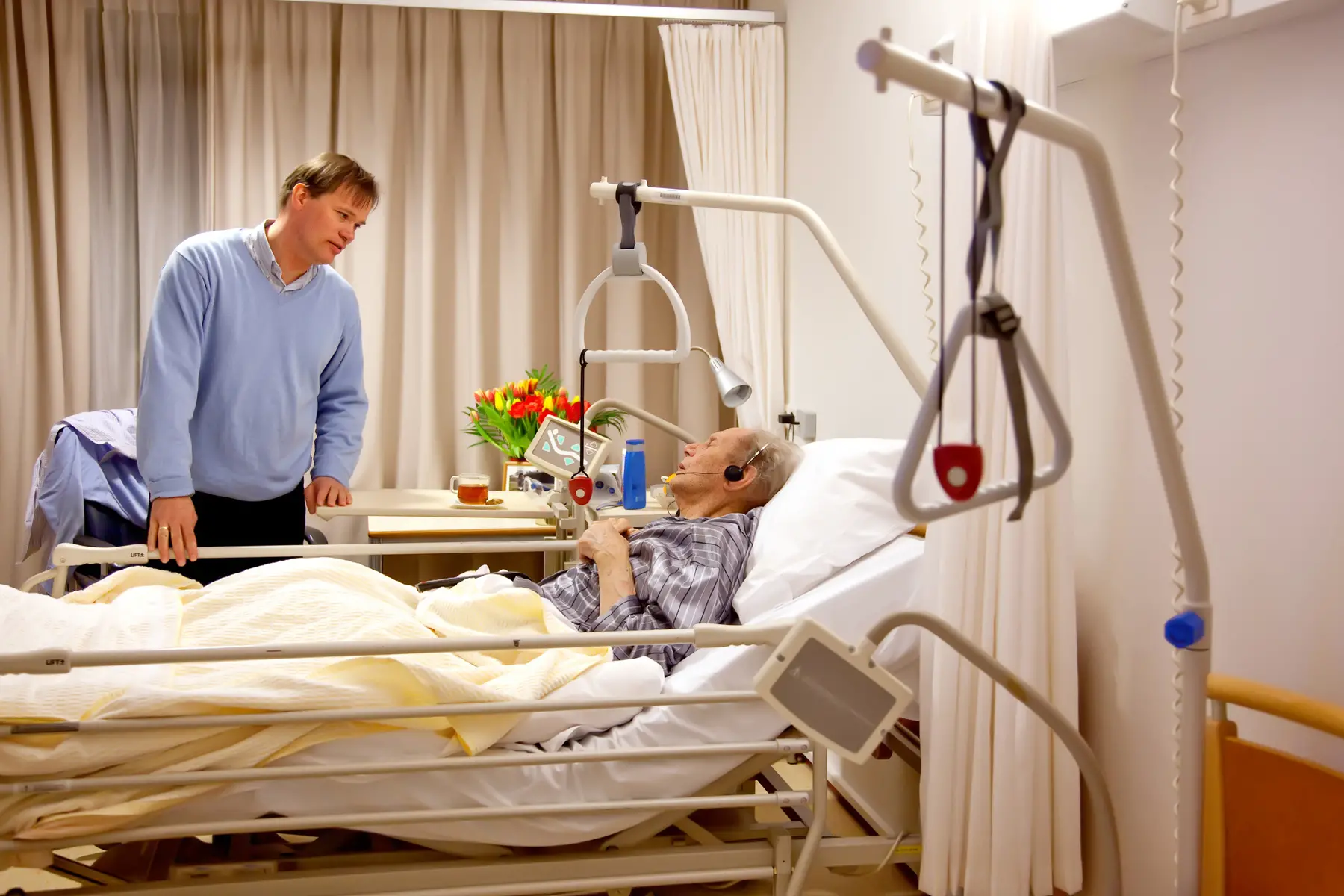
Usually, hospitals allow visitors to bring any item that the patient requests, as long as they don’t pose a health risk.
The best hospitals in the UAE
As previously mentioned, the UAE offers world-class medical facilities with excellent hospitals, that are most concentrated in Abu Dhabi and Dubai. Below are the top-rated hospitals in the country, in order of ranking.
American Hospital – Dubai
The American Hospital in Dubai is a 254-bed private hospital that was founded in 1996. It is a multidisciplinary facility with a research and innovation hub. It also uses robotic-assisted surgeries. Furthermore, it was the first hospital in the Middle East to join the Mayo Clinic Care Network (2016) and be accredited by the prestigious Joint Commission International (JCI).
Cleveland Clinic – Abu Dhabi
The Cleveland Clinic Abu Dhabi is one of the largest medical centers in the Middle East, with 500 beds across 13 floors. The private institution follows the healthcare model of the Cleveland Clinic in the US, which addresses a range of healthcare needs. It also includes over 40 specialties and has six centers of excellence.
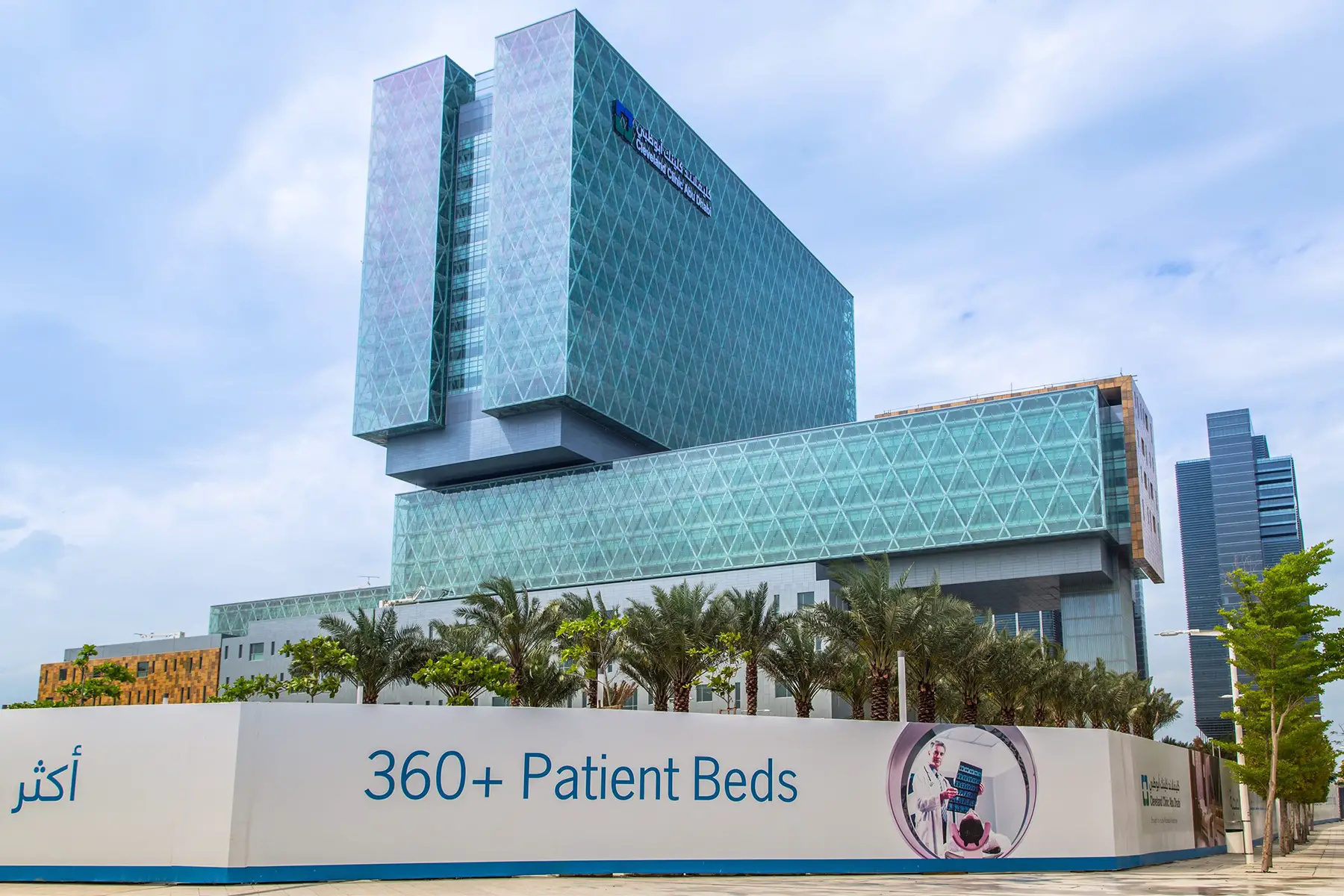
These centers are interdisciplinary units that provide exceptional expertise and resources in a particular area of medicine; such as ophthalmology, cardiology, neurological, digestive, respiratory, and critical care.
Thumbay University Hospital – Ajman
Located in Ajman, the Thumbay University Hospital is one of the largest private academic hospitals in the Middle East. Moreover, this hospital has a dedicated long-term care unit with over 100 beds and personalized fast-track patient services.
NMC Royal Hospital, Khalifa Center – Abu Dhabi
Owned by the country’s largest private healthcare group, NMC, the NMC Royal Hospital – Khalifa Center in Abu Dhabi has one of the highest consultant-patient ratios in the UAE. Furthermore, the hospital has a 500-bed capacity, including over 50 critical care beds.
Zulekha Hospital – Dubai
Part of the private Zulekha Hospital Group, the Zulekha Hospital Dubai has an excellent reputation and offers both in and outpatient care. Moreover, it has cutting-edge operating theatres, emergency rooms, and centers of excellence in cardiology, oncology, dermatology, physiotherapy, gastroenterology, and plastic surgery.
List of hospitals in the UAE
Abu Dhabi
- Ahalia Hospital
- Bareen International Hospital
- Lifecare Hospital
- LLH Hospital
- Medeor Hospital
- Mediclinic Al Noor Hospital
Ajman
- Ajman Ahaliya Medical Center
- Amina Hospital Ajman
- Ibn Sina Medical Centre Ajman
- Saudi German Hospital Ajman
- Sheikh Khalifa Medical City Ajman
Dubai
- Al Zahra Hospital
- Canadian Specialist Hospital
- Emirates Hospital
- King’s College Hospital Dubai
- MedCare Hospital
- Prime Hospital
Ras Al Khaimah
- Al Oraibi Hospital
- Al Zahrawi Hospital
- Emirates Hospitals and Clinics
- RAK Hospital
- Sheikh Khalifa Specialty Hospital
Sharjah
Useful resources
- Ministry of Health and Prevention (MOHAP) – the UAE’s official ministerial website with detailed information on public health services
- Department of Health Abu Dhabi (DOH) – an official government website with useful information on health services and initiatives
- Dubai Health Authority (DHA) – a medical directory of health professionals in Dubai
- Embassy of the UAE – the official website of UAE embassy in the US with detailed information on healthcare in the UAE
